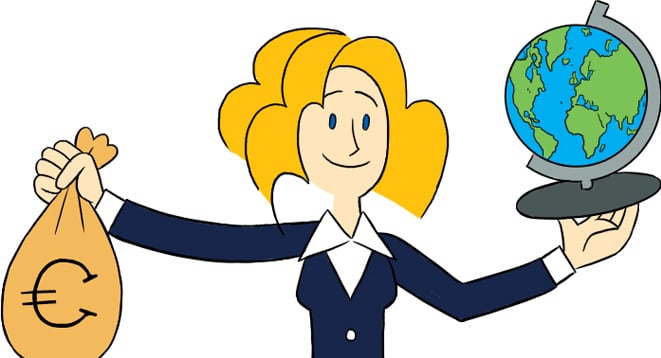
What if the legal and financial protections available to investors were also given to recipients of social returns? Jeremy Nicholls makes the case in his latest blog, and ask if the community share schemes are the answer.
When I invest in a business, I invest in the expectation of a financial return. This comes with risks, as we know the value of an investment can go up as well as down.
We, society, have introduced a wide range of measures to protect me from risks, risks that I may not get a financial return, but also the risk that someone may mislead me in promoting an investment opportunity.
Perhaps one of the most effective measures we have created is a secondary market for investments, a stock exchange, so that if I don’t want to remain an investor I can sell up and move on. I can also invest, of course, in businesses where I cannot easily exit but I will want a higher return as a result.
I am protected in other ways as well. The company has to produce an account of its financial results which is independently audited. I have some confidence in the amounts the company has available to distribute.
Most importantly the auditor is employed by me and not by the managers of the company. If I don’t think the business is distributing enough I can even start shareholder actions of one sort or another. Perhaps I can become a director at the AGM, Perhaps I can gain support from enough other investors to drive through a vote at the AGM.
Let’s compare this with my expectations of social returns. In the new markets of social investing, venture philanthropy and impact investing there is some expectation of a social return. The investor may or may not get a financial return but they generally don’t expect to receive the social return directly. This will be received by other people. As a lucky beneficiary of this social return, how am I protected?
For starters, the company does not have to produce an account of the social value produced for me. Some companies do produce reports but because these are based on a range of different principles, I am unclear about what this return is and how it has been calculated. I am not getting cash but I am getting something. Very few of these accounts are based on what I think the social return I received either looked like, or was worth.
I have no rights at all in terms of the governance of the organisations creating this social return. I cannot become a director or even attend the AGM. I have no ability to hold the organisation to account. So much for the social return.
This very inconsistency in reporting on social returns means there are no competitive signals to providers or investors to drive better services for me. Any reports are rarely audited and where they are I certainly don’t employ the auditors. Even if I could make a decision based on these reports, which I can’t, I wouldn’t be able to rely on them.
In fact, though the social return mainly comes about when I make use of the businesses, services or products, I am really a customer, although I don’t pay for the service. If I were a paying customer I could choose a different business. But I am getting these social returns because I don’t have the financial resources to afford to make my own choices. Even worse, if any of us customers do not get the expected return or perhaps are made worse off, this does not need to be reported.
As a customer I have little control over the quality of the services provided, so long as they don’t break any laws, though I wonder about false claims of effectiveness of s and whether I could bring them to account for false advertising. Of course, I don’t have the resources or skills to do this. No rogue traders on TV for those providing me with these services. And I am grateful for what is done, since I don’t know what the alternatives would look like.
I shouldn’t worry though as everyone has my best interests at heart and are well intentioned. I just can’t help wondering why the protections available to investors in financial returns aren’t even more important to recipients of social returns and why government can’t legislate and raise the requirements for social investors in the same way it has been willing to protect private investors
There is one model that squares this circle though. Community share schemes, where people in a community invest in a business and are investors, consumers and owners. Ownership is not the only way to ensure accountability, it doesn’t always guarantee it and may not always be appropriate, but it’s a pretty good start.
This article was first published on PioneersPost.com, the online newspaper for social entrepreneurs.
-1.jpg?width=232&name=GT%20Sinzer_logo_screen_descriptor%20(1)-1.jpg)
